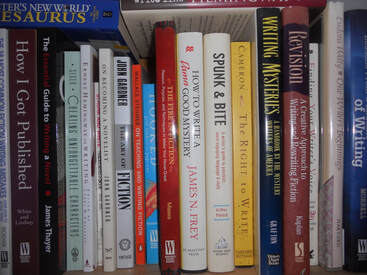 When I submitted the final manuscript of my new novel to my publisher, the response from the Senior Editor was that my manuscript had been accepted, but that its length (approximately 147,000 words) might be problematic. My novel, if published at the length that I submitted, is longer than normal for the type of fiction novel that the publishing house typically produces and is probably longer than the “standard” length recommended by the publishing industry for a novel of its type. Novels that are longer than the standard risk not being read by readers because they won’t buy a book that’s either over a certain length or is greater than a certain thickness. I didn’t know that the publishing industry had “standards” for length, but after reading a few articles, I have found, for example, that adult fiction novels have typical lengths of 80k to 90k words, with 110k being considered as the upper limit; science fiction and fantasy run longer, at about 90k to 100k words, and maybe up to 125k. Middle grade novels are normally from 20k to 55k words, and maybe between 40k to 55k for older middle graders; 55k to 80k words is a great range for Young Adult Fiction. These “standards” do not confine any particular book to any particular length (the publisher can do what they want) but are indicators that certain readers may not buy the book because it appears “too long” for their tastes or for what they are accustomed to reading. I found “standard” lengths for every book genre, including Picture Books, Westerns, Mysteries, and Memoirs. I do not know if there are standards for non-fiction books, and I also do not know if standards are different for electronic books. My Mogi Franklin Mystery books are 38k for the smallest and about 47k for the longest, so they are within the standard range. The King of Trash is about 80k, and Teddy’s War is close to 90k (it was submitted at 105k words), so they are also within the given range for adult fiction novels. However, my new novel is out of the norm by about 50%, which is a lot. I want to think that I wrote the story that I was compelled to write, so I have the usual authorly reply that the story needs all the words that I used in writing it. I cover a lot of ground with the action (from St. Louis to Las Vegas, NM, to Ft. Sill, OK, to Goodnight, TX, and then up to Nebraska), while setting the story in at least a couple of timeframes (1870 to 1884, and 1904), so I attribute the longer-than-normal length of the book to its being more of an “epic” than the usual fiction novel. We’ll see what my story editor has to say after she finishes her first read-through. It was interesting to find the lengths of some major novels that are considered huge: The Harry Potter books range from The Philosopher’s Stone at 77,325 words to the Deathly Hallows at 198,227, totaling more than a million words for the whole story. The Lord of the Rings has a total of 455,125 words across the three books. The first five Game of Thrones books run from 298,000 to 424,000 words, totaling close to 2 million words. And that’s without the next two books. Examples of well-known books with fewer words include: The Great Gatsby has 47,094. Black Beauty has 59,635. The Sun Also Rises has 67,707. Anne of Green Gables has 97,364. To Kill a Mockingbird has 100,388. Sense and Sensibility has 119,394. A Tale of Two Cities has 135,087. A Tree Grows in Brooklyn has 145,092. The Grapes of Wrath has 169,481. Moby Dick has 206,052. Lonesome Dove has 365,712. Gone With the Wind has 418,053. War and Peace has 587,287. I’m pretty sure that I’ve never known the number of words in a book before I read it. If I have a “size” criteria, it’s more the thickness of the book, which is connected to how much time I think it will take to read it. There are several books that I haven’t bought because they looked “too long”, and I’ve gotten to where I always look at the number of pages for any particular book on Amazon. The older I get, the less inclined I am to suffer through a great number of pages, regardless of the story. In spite of that, my current reading book, Beneath a Scarlet Sky by Mark Sullivan, has over 500 pages, while another reading book I’ve started, The Other Einstein, by Marie Benedict, has a little more than 300 pages. In each case, the number of pages tell little about the number of words in each book since the font size can be adjusted, as can the space between lines. I would bet that the book by Mark Sullivan has more words than the “standard” adult fiction novel, and I would also bet that its length is not unusual compared to other adult fiction novels on the shelves at Barnes and Noble. Every business should have rules-of-thumb that define how their products should be configured to sell best, and publishers are no different. I’m not sure that I can shorten my story by a third without ruining the story, but I’m open to recognizing that I might have written a story that is too long for an average reader to be interested in reading in the first place. Experienced publishers and editors live their lives trying to balance words, pages, and covers with readability, marketability, and practicality, so it’s their job to judge my future book for the readers that I’ve targeted. If it’s a long story, it may take a long book to tell it. On the other hand, it may be a great story but if people are naturally inclined to not even buy it, then no one will read the book, anyway. When it comes down to it, my publisher doesn’t want to publish a book that people won’t read, and, when it comes down to it, I’m supposed to trust them to help me make the book more likely to be read.
2 Comments
Bill Willmon
7/5/2021 10:15:32 pm
The shortest book that I have read recently was about 100 pages. The longest was 600 pages. I don't chose books by length.
Reply
Buff
7/9/2021 07:48:14 am
I belong to several book clubs. The books we select to read are usually less than 400 pages so everyone can finish reading them in a month. I read longer books on my own that can last several months like the Outlander series. When you have a loyal following, then you can make books longer because every reader will appreciate all the research and mastery that went into writing it.
Reply
Leave a Reply. |
AuthorDon Willerton has been a reader all his life and yearns to write words like the authors he has read. He's working hard at it and invites others to share their experiences. |

 RSS Feed
RSS Feed